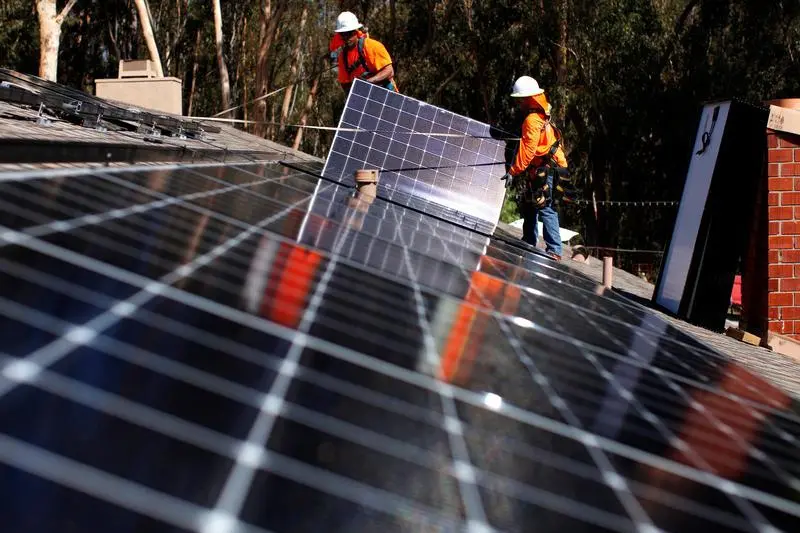PHOTO
A private hospital is set to become the first eco-friendly facility in Bahrain after signing a $1 million agreement to install a solar system on its premises.
The project is expected to generate 1MW of power for the 100-bed multi-speciality hospital being built by the American Mission Hospital (AMH) in A’ali.
The GDN reported in April that the ambitious twin-hospital complex planned next to Ramli Mall by the kingdom’s oldest private medical facility would be built in two phases.
The first consists of a maternity and children’s hospital and the second a 100-bed multi-speciality hospital.
Covering nearly 30,000sqm, it will include single-roomed intensive care units, an imaging centre, infertility centre, 300-seat auditorium for meetings and conferences, as well as a special needs children’s development assessment and treatment centre.
An agreement to install the solar panels on the new facility was signed between AMH chief executive Dr George Cheriyan and Solartecc Green Energy Factory at a ceremony at the hospital in Manama yesterday.
Speaking on the occasion, Dr Cheriyan said the impact on the environment must be taken into consideration before embarking on infrastructure projects at such a large scale.
“It was our plan from the beginning to have the structure built on lead designs meaning we have to be energy neutral rather than take away from the environment,” he told the GDN on the sidelines of the ceremony.
“One way we can do it is to consume most of the power through solar or other forms other than fossil fuel and that is what we’re aiming for.
“We have also reduced the energy footprint in the new development so that we don’t consume a lot of energy.
“By the time the hospital is near completion in 2022 most of our energy will hopefully come from solar technology.”
Output
Dr Cheriyan revealed that research was underway long before the building was conceptualised for technology that would provide enough solar power to run the 100-bed five-floor state-of-the-art hospital.
“Seventy-five per cent of the power required by the hospital is for ventilation and air conditioning systems and in a climate that is as warm as the Middle East that is a significant power output.
“In addition, we have a lot of equipment and instruments that need power.
“We are also ensuring that the hospital is built with adequate insulation, and looking for other technologies to minimise our energy consumption.”
Depending on the success of this venture, the concept will be expanded to other branches of the hospital, Dr Cheriyan added.
The A’ali hospital will be AMH’s fifth location in Bahrain, after Manama, Saar, Amwaj and Riffa.
Meanwhile, Solartecc Green Energy Factory founder and chief executive Rabie Abdalla said the factory, which is set to produce solar panels in Bahrain, is the biggest factory in the country.
“We are talking about a 25MW capacity for a year and 80,000 panels produced annually,” he added.
“For the first time in Bahrain we are using European standards and our machinery is customised from Italy.
“A big challenge for us is space and with the given space at the AMH in A’ali the maximum we can install is for 1MW which can produce 1,000KW of power per hour.”
He said around 3,000 solar panels will be installed on the hospital’s roof, adding that the factory has the capacity to produce six different categories, sizes, and power of panels.
The factory will be up-and-running in six months, to start full production of solar panels, with hope to begin installing the panels at the hospital within 18 months.
“With the production of 25MW of energy annually I will be reducing around 75 million pounds (the equivalent of around 34019427.750kg) of carbon dioxide per year,” he pointed out.
reem@gdn.com.bh
© Copyright 2019 www.gdnonline.com
Copyright 2019 Al Hilal Publishing and Marketing Group Provided by SyndiGate Media Inc. (Syndigate.info).





















